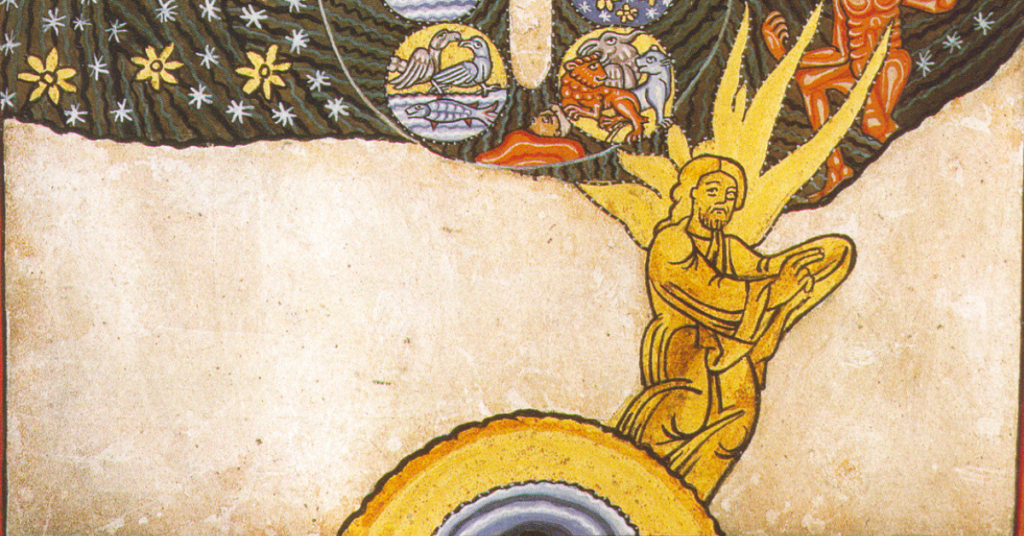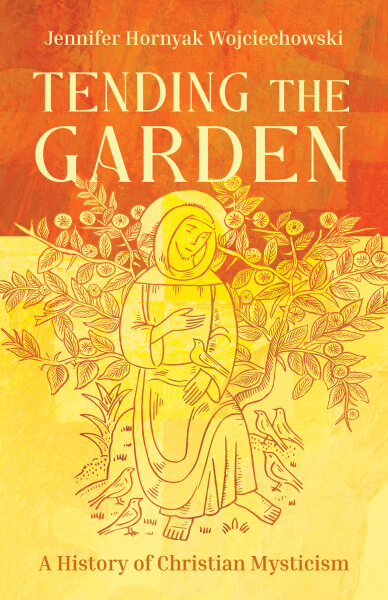“Love grants prophecy, miracles. It is an abyss of illumination, a fountain of fire, bubbling to inflame the thirsty soul. It is the condition of angels, and the progress of eternity.” John Climacus (c. 579–649)
Back in the difficult days of the pandemic, I was doing research for a book on women’s history, and I became intrigued with some medieval and early modern mystics. I met Hildegard of Bingen who founded two monastic houses, wrote in a variety of academic disciplines, and went on an international preaching tour in the twelfth century. I read about Julian of Norwich who walled herself into a single room for decades yet wrote some of the most beautiful writings about God. And I read, and then read some more, from Teresa of Avila who reformed a monastic order while also having visions and apparently levitating. These women did these incredible things because they believed God was calling them to do so. I was hooked. I needed to learn more about the mystics, what bound them together, and what they could offer Christians today.
I spent the next roughly three years reading and writing about the mystics. My book on the topic, a short introduction to the history and theology of mysticism came out this month. By the end of the writing process, I was convinced of what I suspected from the start: mysticism is a vitally important strain of the Christian faith that is more essential to the church today than ever before.
The term mysticism defies easy definition. When I set out to write an introduction to the mystics, one of my first tasks was to craft a definition that could be used throughout the book. This was no easy task because the mystics tend to be an unruly lot. There is no typical mystic. They lived in different times, places, and had vastly different lifestyles. In the end, I defined Christian mysticism as: an intimate and experiential relationship, set within a Christian framework, with the Triune God. There is also a sense of spiritual progress inherent in the term that needs acknowledgment. This isn’t the only definition out there, but I find it helpful. Mysticism isn’t really about miracles or magic or altered stages of consciousness. At its core, the mystics loved God—everything else is just extra.
The mystics didn’t just think about God; they were in a deep and loving relationships with God. Except in a few rare instances, the mystics identify the keys to developing a relationship with God as prayer, living a pious life, love for God, and love for neighbor.
It is no secret that American churches are struggling to connect with Americans who are leaving behind houses of worship at a staggering rate. This fact has been addressed extensively elsewhere, so a simple acknowledgement of the larger conversation is where we will leave things. While there is agreement that churches are struggling, there is little agreement on what should be done about it.
From what I have observed as a seminary professor and a practicing Christian, I think one of the major reasons American churches are in decline is that they are failing to meet the needs of members spiritually (of course there are great churches that are doing this, but on a large scale, something is amiss). Leaning into this historic tradition can open a whole new world of resources, prayers, and spiritual practices for modern Christians. It reintroduces an ancient, but often neglected tradition that emphasizes prayer and relationship over dogma and rules.
Mysticism offers a different way to be in relationship with God and with one another. This is not to justify or promote the exodus from Christian churches. The mystics were generally embedded in religious institutions. But it is to offer a personal and experiential stream of faith that may be appealing to many. It is also a challenge to institutional churches to embrace this long and robust history of experiential Christianity because it may just be what draws in new Christians or even brings disillusioned Christians back into the pews.

Mysticism offers up a different way of looking at the world. It places value on human beings as children of God. Ultimately, the gift of Christian mysticism in the modern age is that it pulls us out of ourselves. It shows us that we can never be enough to save ourselves. It exposes that hollow goal of continual self-improvement and continual productivity. It demonstrates humanity’s dependence on a loving God who breaks into our lives and offers both salvation and transformation. Mysticism is not about our actions or our successes. It is about God’s actions and God’s love. Mysticism should center us in our love of God and help us turn toward our neighbor. It is about being in relationship with the creator of the universe, not because we are worthy, not because we deserve it, but because we are loved anyway.
What mystics are on my shelf?
With countless texts and so many mystics, this is a guide to the mystical texts I find most meaningful. They are in alphabetical order by author, not order of preference. In case, you are wondering Teresa of Avila, Bernard of Clairvaux, and John Climacus are my three personal favorites.
- Anonymous. The Cloud of Unknowing and the Book of Privy Counseling. Edited by William Johnston. New York: Image Books, 1996.
- Augustine of Hippo. Confessions. Translated by Henry Chadwick. Oxford: Oxford University Press, 2008.
- Bernard of Clairvaux. On Loving God. Translated by Jean Leclercq. Kalamazoo, MI: Cistercian Publications, 1995.
- Climacus, John. The Ladder of Divine Ascent. Translated by Colm Luibheid and Norman Russell. New York: Paulist Press, 1982.
- Gertrud the Great of Helfta. Spiritual Exercises. Edited and translated by Gertrud Jaron Lewis and Jack Lewis. Kalamazoo, MI: Cistercian Publications, 1989.
- Hildegard of Bingen. Scivias. Translated by Mother Columba Hart and Jane Bishop. New York: Paulist Press, 1990.
- John of the Cross. John of the Cross, Selected Writings. Edited by Kieran Kavanaugh. New York: Paulist Press, 1987.
- Julian of Norwich. Julian of Norwich: Revelations of Divine Love. Edited by Barry Windeatt. Oxford: Oxford University Press, 2016.
- Sales, Francis de. Introduction to the Devout Life. Edited and translated by John K. Ryan. New York: Image Books, 1989.
- Teresa of Ávila. The Book of My Life. Translated by Mirabai Starr. Boston: New Seeds, 2007.



I understand Christian Mysticism as: An experiential contact between the human spirit and the Spirit of God which is typically excercised through worship and prayer. Different mystics go through different hardships to give birth to this mystical life and hence they have different gifts. But bring a mystic doesn’t guarantee greatness and maturity- but one needs practical love and humbleness which will eventually enhance the mystical experience.